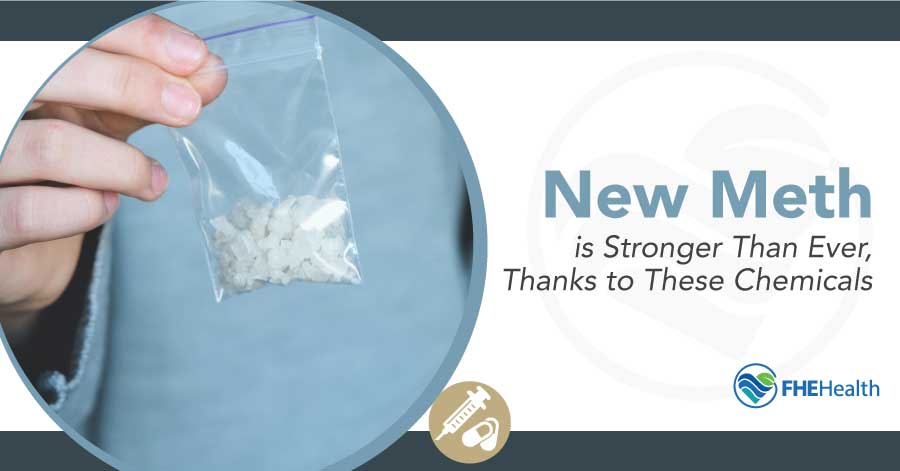
People have used methamphetamines to get high for many years. For instance, during the Second World War, Japanese pilots were given methamphetamines to help them stay awake.
As a street drug, meth came of age in the United States in the ’70s and ’80s. It was primarily made using ephedrine, often sourced from then over-the-counter medicines like Sudafed and cooked in small batches. But starting in the late ’90s, drug experts and DEA agents noticed a change in how meth was made for street distribution.
This new way of making new meth superseded the old method. Criminals who previously could only make small batches of five to 10 pounds of meth over a three-day period could now make about 240 pounds in a single batch.
This new, more deadly meth is primarily made from a clear liquid called phenyl-2-propanone or P2P. According to an article in The Atlantic magazine from November 2021, P2P is created using cheap, often legally available but toxic chemicals, including cyanide, lye, mercury, sulfuric acid, hydrochloric acid and nitrostyrene.
Originally developed by biker gangs in Southern California in the 1980s, it started to dominate the meth trade in the early 2000s. Once upon a time, a pound of methamphetamine could cost $10,000. However, this change in the method of production has led to a tidal wave of available meth on the streets. New meth is so cheap that in some places, it’s given away as a gateway drug.
Hollywood Meth Stereotypes Have Changed — It’s More Deadly Than Ever
Hollywood has given most of America a rather romanticized view of meth and other drugs. The popular TV series Breaking Bad saw a high school chemistry teacher who’d been given a cancer diagnosis start selling meth to pay his medical bills.
Interestingly, the show also depicted the change from the old meth to the new meth. While the series was very well acted and may have depicted some of the dangerous aspects of the drug trade, it did a very poor job of illustrating the medical dangers of taking new meth.
Ephedrine Meth vs. New Meth – What Are the Changes and Why Is It More Dangerous?
The new meth produces significantly different reactions in meth users than previously. The ephedrine-based methamphetamine sold on the streets in the latter part of the 20th century often produced a kind of euphoria. You could often tell a person was on ephedrine meth because they became extremely chatty, hyperalert and excited about unexpected things.
New meth, however, produces changes in the brain that lead to feelings of isolation, rage and paranoia, which is different from ephedrine meth.. As one doctor described it in the Atlantic article, “The symptoms were always similar: violent paranoia, hallucinations, conspiracy theories, isolation, massive memory loss, jumbled speech. Methamphetamine is a neurotoxin — it damages the brain no matter how it is derived. But P2P meth seems to create a higher order of cerebral catastrophe.”






